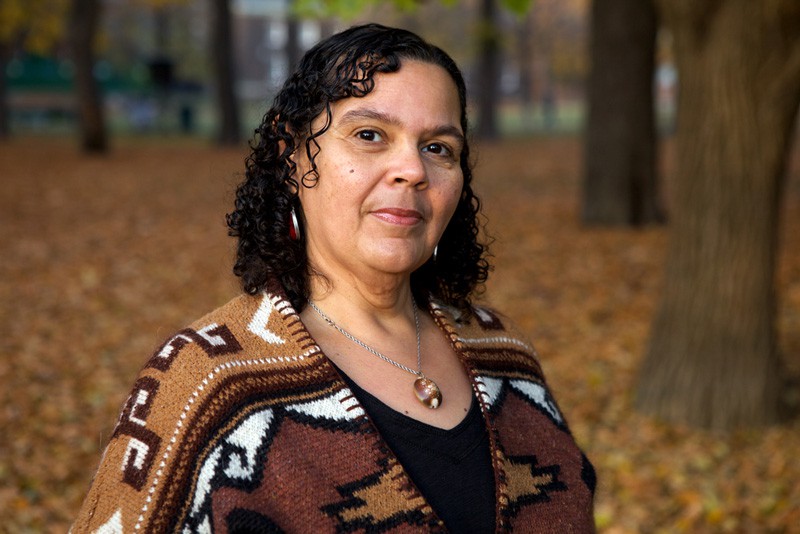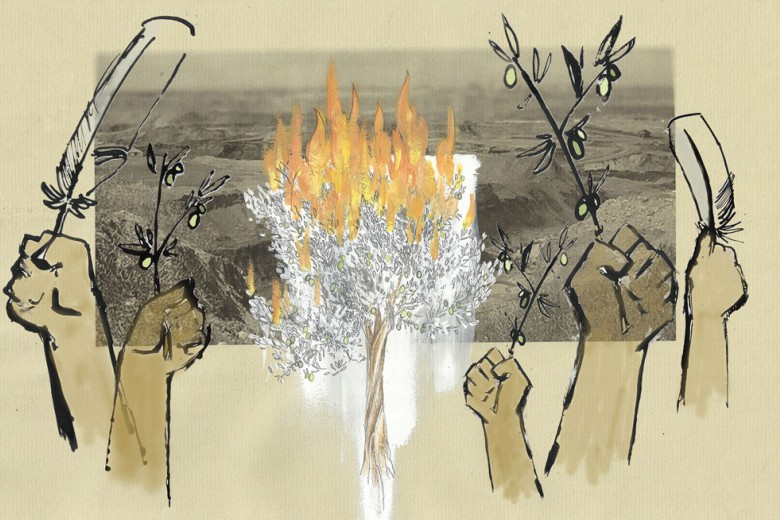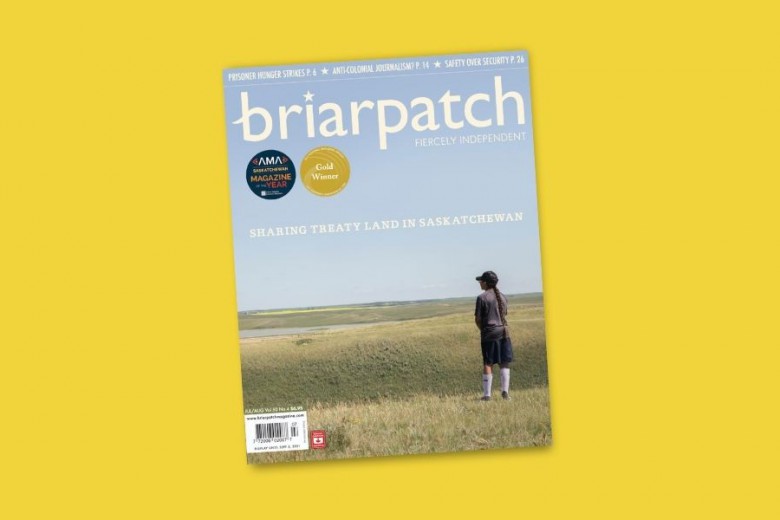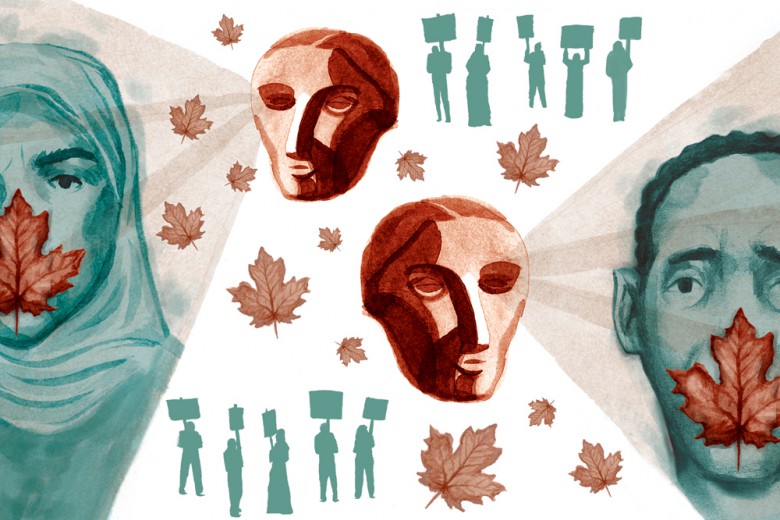
“Politics and spirituality are both about taking care of the people.”
— Renee Thomas-Hill, Turtle Clan Mother, Mohawk
“Life in the cities is connected to abstracts like economics, nationalism, capitalism and militarism. These, as ideologies, are not connected to the great source of life. They are connected to an indirect, obtusely subconscious, misogynistic mini-reality.”
— Gkisedtanamoogk, Wapanoag
On Turtle Island, struggles for Indigenous sovereignty and decolonization cannot be fully understood outside of their cultural and historical contexts. First Nations political struggles are informed by Indigenous world views, values and histories that are infused with our spiritualities.
While specific spiritual beliefs are as varied as the distinct First Nations communities on this land, Indigenous world views generally operate from a framework of interconnectedness whereby relationship is the lens through which we understand and sense the world. It informs the ultimate vision of sovereignty and decolonization, and impacts the goals, strategies and tactics of our activism.
A relationship framework sees humans as intrinsically interdependent on one another, as well as on other life on the planet and beyond. What we think, say and do impacts, directly and indirectly, everything and everyone else — and these in turn affect us. We are further impacted by ancestors, and will ourselves impact generations to come. By virtue of being human, we are members of a community of living, non-living, once-living and soon-to-be-living entities. We need others to survive — not only to provide the sustenance that ensures our physical well-being, but also to provide love in all of its emotional and physical manifestations. We further need a healthy concept of self, which implies limits, roles and responsibilities. The current environmental crisis is testimony to what happens when we do not understand and respect that we two-leggeds are dependent on a complex web of relationships.
Reframing Indigenous sovereignty
The struggle for Indigenous sovereignty is often framed around issues of land title, resource rights and self-governance. However, there is a deeper meaning to sovereignty exemplified by the often-heard call for all of us to “decolonize our thinking.” This calls on us to understand that we are all equal players in a vast network of relationships, that our relationships are what give our lives meaning, purpose and even definition, and that it is through our relationships that we survive, learn and evolve.
Implications for activism
Approaching social struggle from a relationship framework has significant implications for the choice of tactics employed by Indigenous activists and their allies. Despite sharing a basic framework of understanding, many Elders, Clan Mothers and veteran activists are not necessarily of one mind when it comes to strategies and tactics. While court challenges to land and resource rights might serve to advance the struggle of one community in a particular moment, blockades and land reclamations make the most sense in another context. In some situations, multiple strategies are valued, sometimes escalating from less to more confrontational. However, engrained in First Nations’ cultures are the structures, processes and recognized value of discussing such matters with respect, ultimately with the goal of coming to one mind.
The relationship framework provides guidance in these discussions, ruling out tactics that serve to dehumanize or treat others as less than sacred, as less than “˜relations.’ It also speaks to the honour, respect and integrity with which we implement tactics, and mandates that we consider the impact of our tactics on the ultimate vision and Our Relations. As Cherokee activist and scholar Andrea Smith says, “how things are done is just as important as what is done.” In this regard, we should never forget the community’s role and authority in struggle — maintaining the spiritual, emotional, mental and physical well-being of the community (in its broadest sense) is the struggle.
Drawing on a relationship framework has implications for articulating both politically radical and spiritually evolved visions of what human communities and the global family might look like. Furthermore, to divorce Indigenous struggles from their spiritual roots is, in its essence, a form of cultural genocide. Our identities, cultures and communities are rooted in a spiritual world view that cannot simply be reduced, separated from, and cut out of our beings without fundamentally impacting who we are. Attempts to do so further cut off possibilities of learning and evolving through relationships born of mutual respect.






